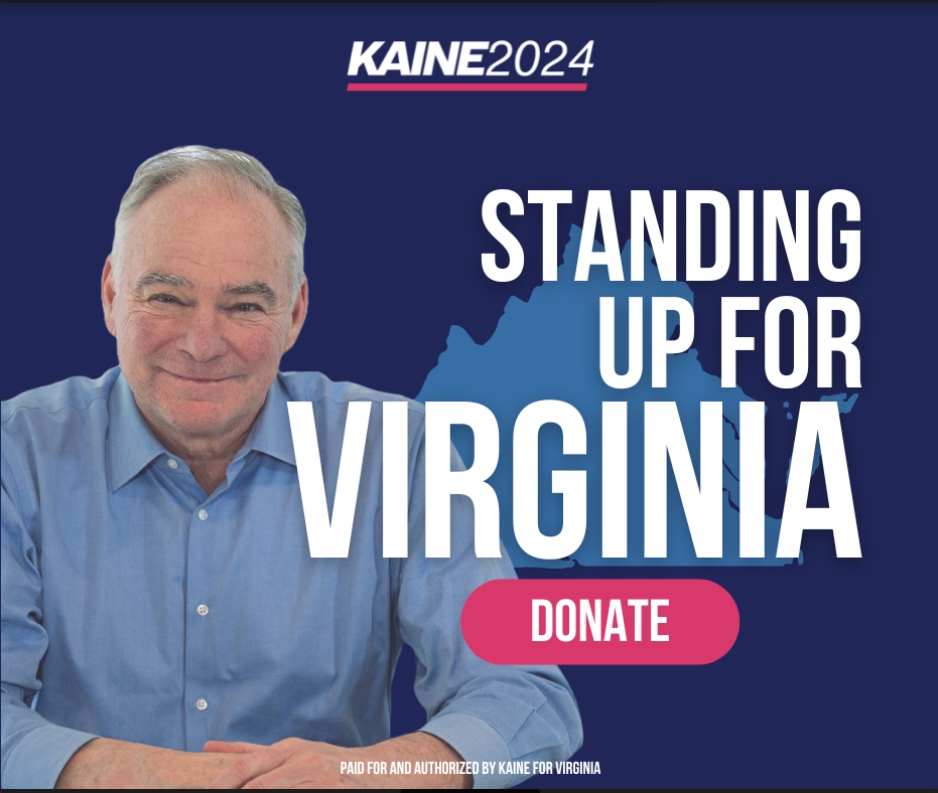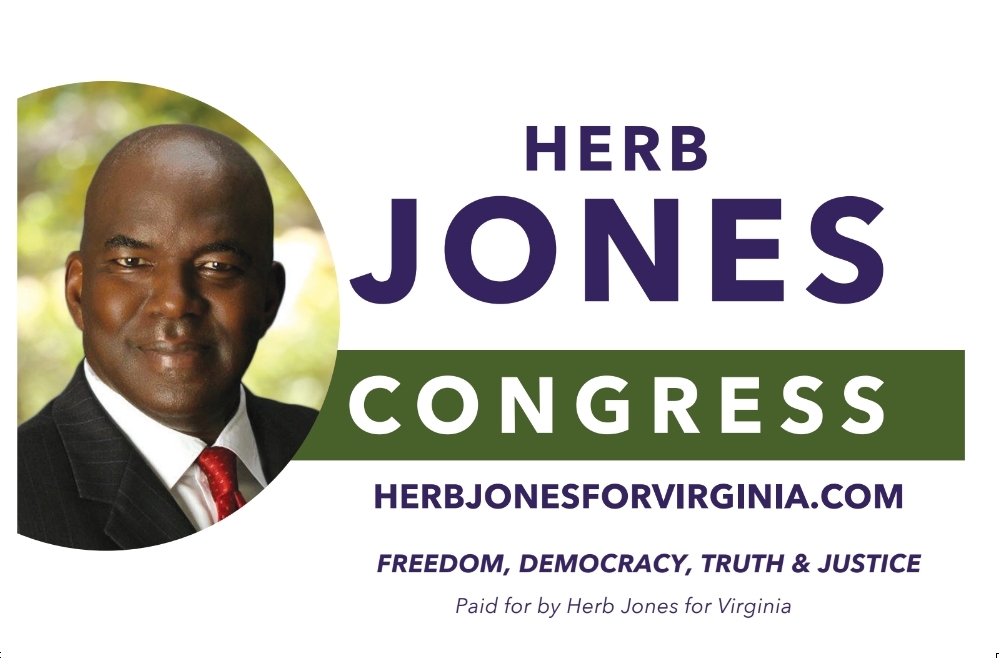On Thursday evening, I accompanied my wife, April Moore, to an event being held by Harrisonburg Indivisible. The event was an “educational forum” in which advocates of the two candidates for the Democratic nomination for governor in the upcoming (6/13) primary were to present the case for their preferred candidate. April was there representing the Perriello campaign.
During the Q & A following the presentations, one of the people in the audience spoke up. After saying that he liked Northam, and that he still thought it likely that he’d vote for him, he indicated that he was somewhat undecided because of a substantive phone conversation he’d had with Northam.
The subject of that conversation was the Atlantic Coast and Mountain Valley pipelines, and several times, in his remarks, this gentleman used the word “disappointed” to describe his feelings about Northam’s position. He was disappointed because he wanted Northam to come out against the pipelines, as Tom Perriello has done.
Northam seemed evasive, like his reasons didn’t satisfactorily explain his position. Northam maintained that the pipeline was a federal issue, and that there was nothing a Virginia governor could do about it anyway—whereas, in fact, the governor’s control over whether or not to issue water permits could be used to stop this pipeline project in its tracks.
April responded to this gentleman’s pipeline concern by articulating good reasons for opposing the pipeline (as Perriello does): 1) it’s bad for the land (entailing as it does mountaintop removal across a 38-mile stretch); 2) it’s bad for the property owners (which is why the pipeline is so unpopular in this western part of the state); and 3) it’s bad in terms of climate change (which is the greatest challenge humankind has ever faced, and which is also the issue that April feels most passionate about).
But April felt unsettled about how she’d handled the issue—that something was missing. In the middle of the night, she woke up stewing about it. Then it came to her.
It’s obvious, she thought: Northam’s position on the pipeline makes sense in the light of another issue April had raised in that Indivisible Forum: the issue of the corrupting influence of money in Virginia politics, and in particular the way Dominion Power – by far the largest campaign donor to Virginia politicians – has bought influence.
The reason Northam supports the pipeline, despite its being such a bad idea, April realized, must be his long-standing connection with Dominion, which owns one of those pipelines.
Northam – who has received over $100,000 in Dominion money over the years– has refused to join with the movement of Virginia candidates refusing Dominion money so as to move toward a government that serves the public interest and not this giant monopoly.
Perriello, meanwhile, has been a leader of that movement, and has sworn not to accept any money from Dominion.
At that Indivisibile forum, April had gone out of her way to avoid speaking critically of Northam. She was concerned to avoid divisiveness. But there in the middle of the night, she wished that she’d spoken out about why Northam would back this bad pipeline idea: Northam’s position on the pipeline is a manifestation of a most serious chronic problem in Virginia politics—the betrayal of the public interest by our money-soaked politics.
A piece of Northam, in other words, has been bought.
To say that a piece of Northam has been bought, though it sounds harsh, is not to damn him.
For one thing, regrettably, Northam is more typical in this than exceptional. It is clear from the laws that have been passed that the majority of members of the General Assembly have sold a piece of themselves to this huge political force. In doing Dominion’s bidding on the pipeline, for example, Northam is no different from, say, Governor McAulliffe.
And just as McAulliffe has done good things as governor, while going along with the money system as he found it, one would expect a Governor Northam – a humane and caring man, from what one hears – would do a lot of good things.
Some leaders adapt to the corruption in the system, as they find it. And if they are good people, they try to do good in those areas where the interests of the corruptors are not at stake.
Others decide that redeeming that system from the corruptions that pervert our government is one essential good thing they are called to do.
So we must ask ourselves: how high a priority should be placed on this particular issue? That would depend, in part, on the question: how corrupt is the Virginia system?
An answer: Because of the free play of money in our politics, Virginia ranks 47th of the 50 states in its “public integrity.”
And nowhere is that lack of “public integrity” more visible than in the case of Dominion– a monopoly over a necessity, which is supposed to be regulated by the people’s representatives , but which, in Virginia, quite visibly gets to regulate the regulators. Again and again, Virginia legislators and officials (of both parties) have done the bidding of Dominion, at the expense of the people.*
So, with the clear difference between the candidates visible here regarding the influence of Dominion’s money power, one of the issues on the ballot will be whether Virginia’s present money- corrupted system will be maintained or challenged.
And this particular issue — whether money or people will govern our state — is not a small one.
Not only does our ranking 47th out of 50 states make painfully clear how serious a problem Virginia has. But also, this Virginia version of the issue of whether the Money Power will be challenged is the local form of the larger and quite urgent national challenge to American democracy: will the American people have the awareness and civic passion to take back the power that plutocratic forces – like the Koch Brothers, and those who gave us the Citizens United decision — have stolen from them in recent decades.
How much will this be a government for and by the people, and how much only a government of them?
So the choice in this primary election – between one who takes from Dominion and one who refuses to, one who supports Dominion’s pipeline, and one who seeks to block it — gives Virginia Democrats the opportunity to engage that battle.
That’s one reason why I’m supporting the guy who is issuing a Declaration of Independence from the empire whose money corrupts so much of our state’s government. And who, as one sign of that independence, opposes the building of this destructive pipeline.
_________________________________________
*Once I calculated Dominion’s return-on-investment weighing the cost of the donations against the value of what the state government does for that corporation because of the money. The calculation was about the legislating of a disreputable accounting trick at Dominion’s request, thereby putting a few hundred million dollars into Dominion’s coffers that, in a more fair and honest arrangement, would be in the state’s tax coffers and in the pockets of Dominion’s customers. The ratio of Dominion’s financial benefit to the financial costs of its donations was 1,000:1.


 Sign up for the Blue Virginia weekly newsletter
Sign up for the Blue Virginia weekly newsletter![Tuesday News: “G7 leaders agree to shut down coal-powered plants”; “U.S. pushes for Gaza cease-fire”; VA05 GOP Primary About “who is the most loyal supporter of [Trump]”; “Police use riot shields, chemical irritants to disperse protest at VCU”](https://bluevirginia.us/wp-content/uploads/2024/04/vcubottles-238x178.jpg)










